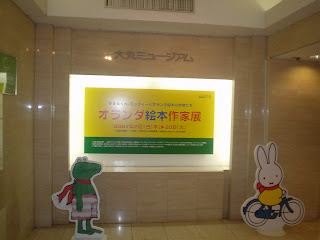 nds or apperances. In Japan, a book that may increase discrimination against foreigners has been published. It's easy to say "Do the right thing!" It's difficult to see people do the right thing.
nds or apperances. In Japan, a book that may increase discrimination against foreigners has been published. It's easy to say "Do the right thing!" It's difficult to see people do the right thing.Sorority evictions anger many at Indiana college
The overweight and
minorities are out
GREENCASTLE, Indiana: When a psychology professor at DePauw University surveyed students, they described one sorority as a group of "daddy's little princesses" and another as "offbeat hippies." The sisters of that sorority, Delta Zeta, were seen as "socially awkward."
Worried that a negative stereotype of the sorority was contributing to a decline in membership that had left its Greek-columned house here half empty, Delta Zeta's national officers interviewed 35 DePauw members in November, quizzing them about their dedication to increasing recruitment. They judged 23 of the women insufficiently committed and later told them to vacate the sorority house.
The 23 members included every woman who was overweight. They also included the only black, Korean and Vietnamese members.
The dozen students allowed to stay were slender and popular with fraternity men — conventionally pretty women who the sorority hoped could attract new recruits. Six of the 12 were so infuriated they quit.
"Virtually everyone who didn't fit a certain sorority member archetype was told to leave," said Kate Holloway, a senior who withdrew from the chapter during its reorganization.
http://www.iht.com/articles/2007/02/25/news/sorority.php
 人の場合,まずこのニューズの意味することがなかなかわからないかもしれない.アメリカの大学では,学生社交クラブというのがある.男性,女性に分かれていて,それぞれ「フラタニティ(Fraternity)」「ソロリティ(Sorority)」という.たいてい,彼らは寮生活を共にして,お互いに「兄弟」「姉妹」の契(ちぎ)りを交わすらしい.
人の場合,まずこのニューズの意味することがなかなかわからないかもしれない.アメリカの大学では,学生社交クラブというのがある.男性,女性に分かれていて,それぞれ「フラタニティ(Fraternity)」「ソロリティ(Sorority)」という.たいてい,彼らは寮生活を共にして,お互いに「兄弟」「姉妹」の契(ちぎ)りを交わすらしい. 変わりない.ただ,大学内に建物があるれっきとした組織でそれをしてしまうとまずいということだ.また,特定の人種などを除外するのは,別の問題も出てくる.
変わりない.ただ,大学内に建物があるれっきとした組織でそれをしてしまうとまずいということだ.また,特定の人種などを除外するのは,別の問題も出てくる.
Ken "Duke" Kitashiba speaks English.
最後に,昨日,『ジャパンタイムズ』紙で見つけた気になるブックレヴュー(書評)を貼り付ける.これにはちょっとがっかりした.日本人も外国人差別をあからさまに行なっているのかと思った.しかも,よく『平成教育学院』に出ている北森健(きたしば・けん)が原稿を寄せているようだ.彼はこの番組ではなぜかよく英語をしゃべっていた.
FAMILY MART CANS SALES
Mag on foreigner crimes not racist: editor
By
MASAMI ITO
Staff writer
"Now!! Bad foreigners are devouring Japan," screams the warning, surrounded by gruesome caricatures of foreigners who look like savages, with blood red eyes and evil faces.
This is the cover of Kyogaku no Gaijin Hanzai Ura Fairu (Shocking Foreigner Crime: the Underground File), a special-edition magazine published by Tokyo-based Eichi that has triggered public outrage and caused Family Mart to call it discriminatory and pull it off the shelves.
The 125-page single edition is about crimes committed by non-Japanese.
The pages are filled with crime stories and photographs of alleged crimes
being committed, drug deals, stabbings, gang fights and arrests -- all of them involving people from a wide range of countries. Some of the nationalities named are Iranian, Chinese, South Korean, Brazilian and Nigerian.
A spokesman for Family Mart, the main distributor, said that two days after the magazine was released at the end of January, it began receiving e-mail complaints.
...Shigeki Saka, editor of the magazine, claimed Eichi did not intend to
discriminate against foreigners but wanted to provide an opportunity for
"discussion" about the issue."This book was not originally published for foreign readers," Saka said. "It was to raise the issue (of crimes committed by foreigners) in Japanese society. . . . But I believe the foreigners have the fear that they will be viewed in the same way" as criminals.
Carlo La Porta, whole holds British and
Italian citizenship and has lived in Tokyo for 16 years, said he thought the magazine painted foreigners as
criminals.
The magazine "brings a problem into focus without adding perspective to it, and as such implies that foreigners at large commit a lot of crimes," La Porta said.
Although the headline of a feature interview with a former Metropolitan
Police Department investigator, on the magazine cover, says, "In 2007, anyone could be the target of foreigner crime!!" the number of crimes committed by non-Japanese has actually fallen recently.
...Eichi's Saka said he published the book despite the recent decline in crimes, a point the magazine briefly mentions.
"The content (of the magazine) really is not intended to get rid of foreigners nor is it extreme in tone. It is based only on facts," Saka claimed.
"I wanted to talk about the economic situation and environment in Japan that has caused foreigners to commit crimes. But it does contain a little bit of extreme expressions, for commercial purposes."
The magazine contains several articles about the bad conditions many foreigners work under, linking that to criminal activity.
One feature article says poor working conditions in Japan "have caused (foreigners) to build resentment toward Japanese society and, one after another, more people are getting involved in crimes because of the hardships in their lives."
On what are called "entertainment" pages, there are photographs of foreigners and Japanese women embracing on Tokyo streets. One photo of a black man and a Japanese woman has the caption, "Hey nigger!! Don't touch that Japanese woman's ass!!"
Saka said that while he knew the term "nigger" is racist, he reckoned it would have a different nuance written in Japanese. "We used it as street slang, writing it in katakana. But if we had known that we would get such a huge reaction from foreigners, we might have refrained from using it," he figured.
The Japan Times: Friday, Feb. 23, 2007
http://search.japantimes.co.jp/print/nn20070223f1.html














































